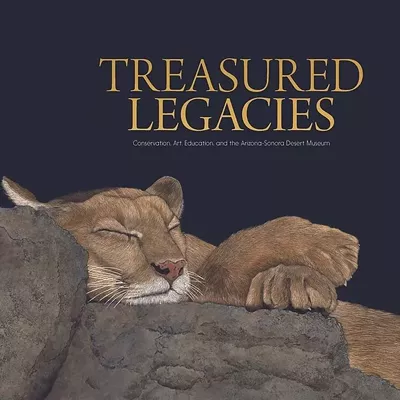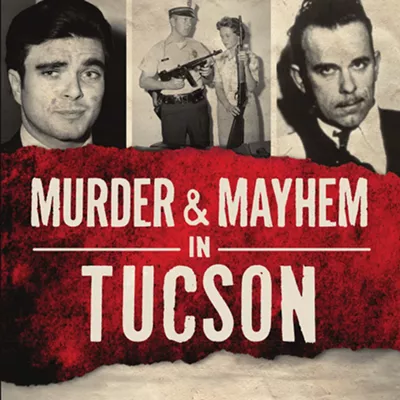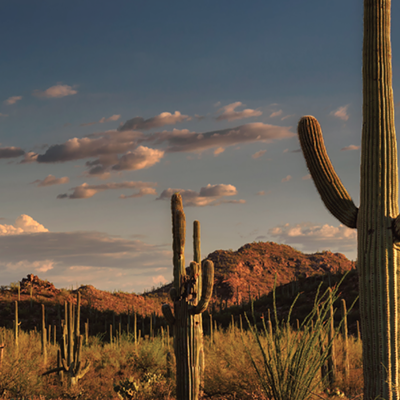Despite its title and the way it's being marketed, The Way Out isn't a survival story, at least not in the Jon Krakauer, Outside Magazine tradition. Certainly, Childs and Dirk, as the author calls his friend, were scared, exhausted and genuinely lost during part of their 14-day trek. In a land so riddled with rock labyrinths, a topo map proves as useful as a foldout piece of abstract expressionism. In such an environment, cougar scat offers the sort of life-affirming glimmer as a 24-7 truck stop when the needle's at E and the bladder's bursting beyond F.
Childs, author of Soul of Nowhere and a frequent NPR commentator, never really convinces us that he was ever in any mortal danger. Actually, he was lost for a few days and never without food or water. While this can seem like a few months in the wild, on paper, the drama lies elsewhere.
The Way Out is a remarkably mixed bag. Its travelogue quickly proves to be an artifice, a means for delving into overwrought nature musings and honest biographical sketches. Fortunately, these diversions are quite engaging, more even than the journey. Childs' accounts of Dirk, his decade long trekking partner, are so evocative one wishes that he and not Childs could take center stage.
During his tenure with the Denver Police, Dirk earned the charming designation of "shit magnet." Duty calls, and Dirk answers, finding a battered woman cradling her unborn infant on the toilet, umbilical cord still attached. A partner is shot at point-blank range responding to a hit-and-run burglar. In an attempt to leave the big city for a quieter life in the mountains, he shoots an innocent man in a gas-station hold up. In the desert, he finds a street cop's sensibility comes in handy, but in ways less taxing to the soul. In both milieus, survival can depend on close reading what others ignore: Interpreting how a car is parked and what its implications are isn't totally different from using a piece of scat to learn about the desert. As Dirk notes, "You have to learn the subtleties."
Dirk is also a delightful crank, forever fulminating about hikers who demand cell-phone service and other maddening ironies of the information age. His irreverent and unpredictable voice tempers that of Childs, whose mountain highs of self-involvement can make a reader yearn for their own way out.
When Childs is actually writing about something, he's quite effective. His attention to Dirk's hardboiled cop tales are detail-rich and suspenseful. Ditto that for his memories of his own father, a sprinter of Olympic pedigree who was injured before his shot at the gold. He later devolved into a wandering drunk who changed jobs and wives with alarming frequency. However, he did manage to introduce his son to the wilderness. He taught him that hunting coyotes meant luring them to the campfire, where a glance at the notoriously shy beast was the ultimate reward.
Unfortunately, Childs is the nature-writing equivalent of a rapper who can only rhyme about his own bad self. With macho staccato sentences, he stitches a tapestry of nauseatingly pretentious verbiage. Like this:
Release this notion that I am a man subject only to the laws of men. Come, wind, wear down my edges and build new ones of me. Make me more than black or white. Abrade me into a world without end. Turn me to sand and spin me through the air. Bring me to the ground again and I will build the next civilization of stones.
Uh ... right. Build a paragraph first, and then we'll talk stones and civilization. The Way Out brims with this sort of bullcrap. Even the ubiquitous "about the author" postscript claims that Childs and his wife spend their time in the field, "where little is known about their lives." Homeboy has a book contract and routinely finds his way to an NPR affiliate, hardly the trappings of a mythopoetic Unabomber ...
What's amazing about The Way Out is how its touchy-feely diversions are so much more engaging than whether or not its protagonists emerge from canyon land unscathed. However unintentionally, Childs requires us to sift through his sonorous self-inflating rhetoric to find the moments where his storytelling and brutal honesty make the trip worthwhile. Many journeys offer a lot less.







